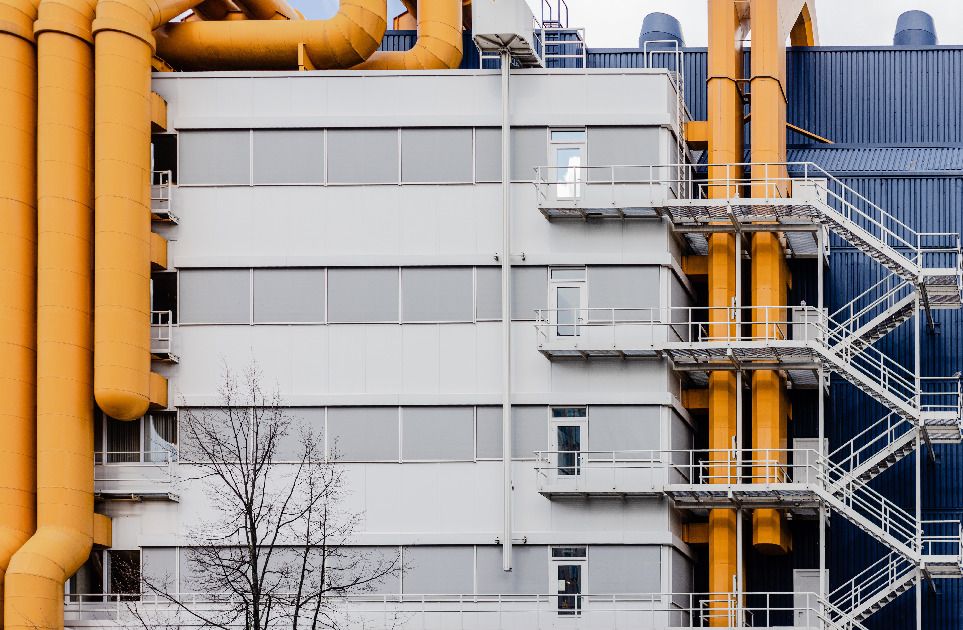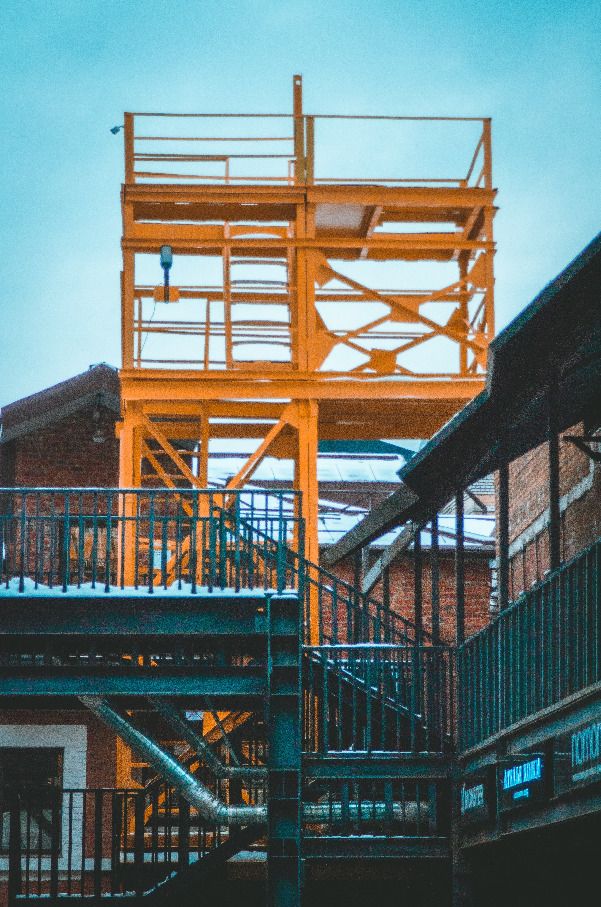More and more owners of commercial and industrial buildings are opting to make their outdoor stairs from aluminum.
Here are 6 reasons why you should make your outdoor staircase from aluminum.
Long product life
Aluminum will never rust or warp, so structural integrity and original appearance remain intact longer than with other popular building materials. Aluminum is resistant to corrosion. When aluminum reacts with oxygen in the air, a thin oxide layer forms, which naturally protects the material from corrosion. The oxide layer can make aluminum appear dull, but this does not affect the structural integrity of the material. The oxide layer provides better adhesion for paint primers and adhesives than other raw metals.
Galvanized steel is often used for exterior stairs because it is somewhat corrosion resistant. The protective zinc coating applied to the material during the plating process prevents rusting, but the zinc coating eventually becomes coated with natural carbonate formed during the process of combining sulfur dioxide with rainwater, resulting in sulfuric acid.
Sulfur dioxide is emitted from the combustion of fossil fuels, which means there are higher concentrations in highly industrialized areas (where galvanized stairs are typically used) due to the high volume of transportation vehicles. The carbonate on the surface of galvanized steel becomes brittle and eventually cracks, exposing fresh zinc, which corrodes. Since the zinc coating is thin, the base metal also often corrodes. In heavily industrialized areas with a high volume of trucks, galvanized steel can corrode, while aluminum will retain its structural integrity.
No maintenance required.
Aluminum is more resistant to corrosion than any other material and does not require regular maintenance. Maintenance of aluminum stairs consists of cleaning the stairs from snow, leaves and other natural elements.
While highlighting the many benefits of aluminum over steel for stairs and landings, it is also important to remember to focus on installing systems and products that will stand the test of time.
Rather than focusing solely on initial costs, it is important to make sure that the systems being installed are compliant, robust and durable. Although price is quite often the main decision factor, this approach often turns out to have short-lived benefits due to high operating costs.

Easy installation
Because of its light weight, manufacturing and installing aluminum stairs is faster, easier and requires less money than with heavier construction materials.
Optimum strength-to-weight ratio
Aluminum meets load-bearing requirements and is easier to install than steel because it is lightweight. Aluminum has about 1/3 the density of steel, which is why stairs made of aluminum weigh much less than steel or concrete stairs.
Material costs
Typically, aluminum and steel are the preferred materials for metal industrial staircases and platforms, Stainless steel, while highly corrosion resistant and strong, is expensive compared to both steel and aluminum, and is therefore less often chosen for industrial applications. When comparing the production costs of aluminum and steel, aluminum almost always costs more due to higher raw material prices. In a typical installation of steel stairs and platforms, on-site cutting and welding is usually required. Steel components also require painting or protection against rust and corrosion. All of these processes increase the installation time and cost of making steel stairs. Aluminum does not require corrosion protection, so labor and maintenance costs are much lower. The savings in labor time means that aluminum stairs and platforms more than compensate for the slightly higher material costs. In addition to labor and material costs, there may be additional costs to consider when installing steel stairs and platforms. Due to their weight, most steel elements cannot be safely moved by hand. This results in the need to bring heavy equipment to the site, an additional cost that is often overlooked when budgeting.
Another area of cost savings for aluminum compared to steel is delivery. The lighter the weight, the lower the shipping charge, which is particularly attractive for locations in remote areas.

Aluminum versus steel - durability.
While steel is 2.5 times denser, providing a higher degree of strength, aluminum still has a very impressive strength-to-weight ratio, and when used in stairs and industrial platforms offers far more than the required strength.
Summary
While steel is a naturally resistant material, it is often assumed to be cheaper. However, aluminum is also an extremely practical and cost-effective material for industrial platforms and stairs. As we have shown, there are many factors, beyond the initial cost of delivery and installation, that have a significant impact on the final total cost of the system.
Aluminum is light, strong and durable, and for these reasons it remains the best material for industrial stairs.
All posts from category "Stairs"




